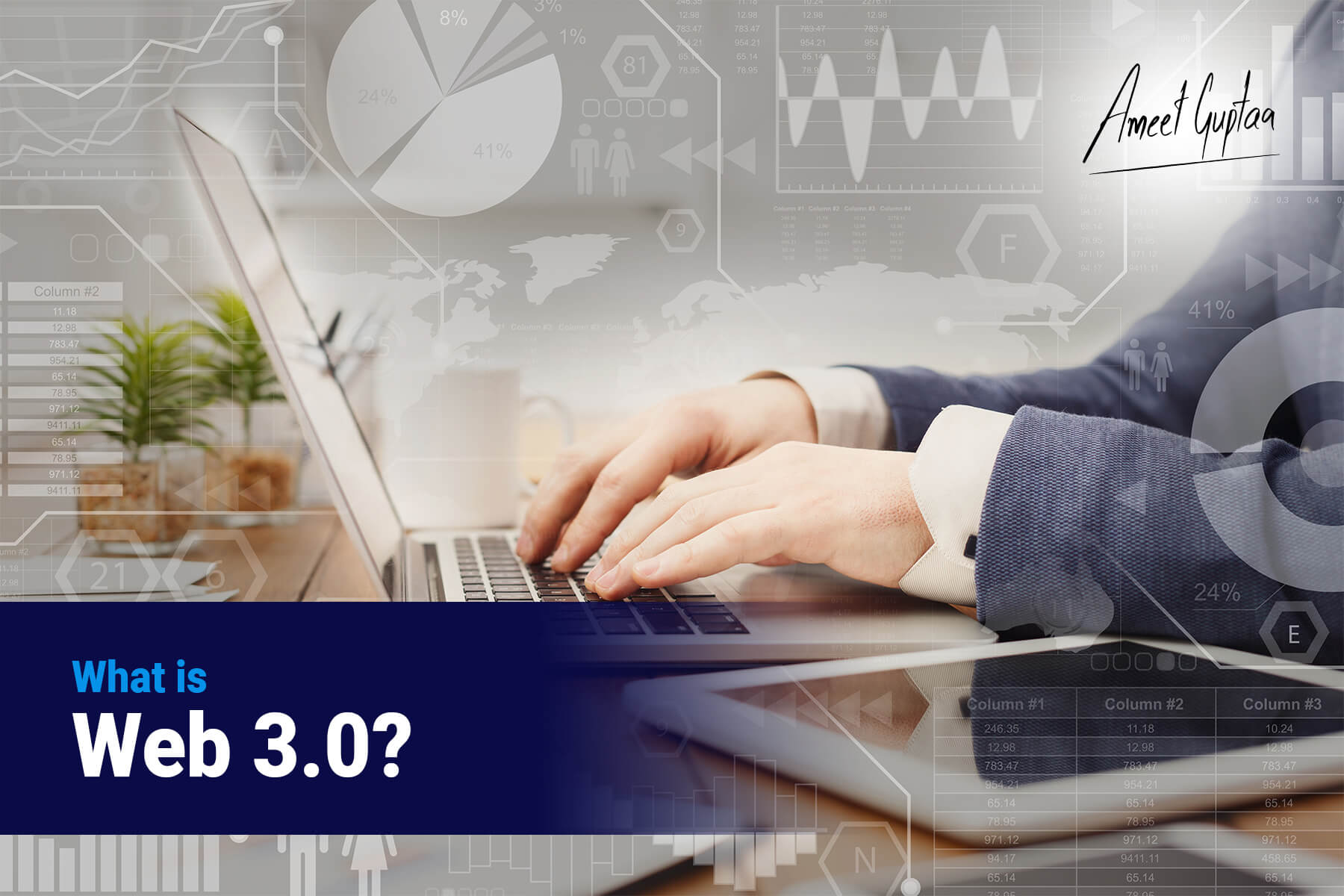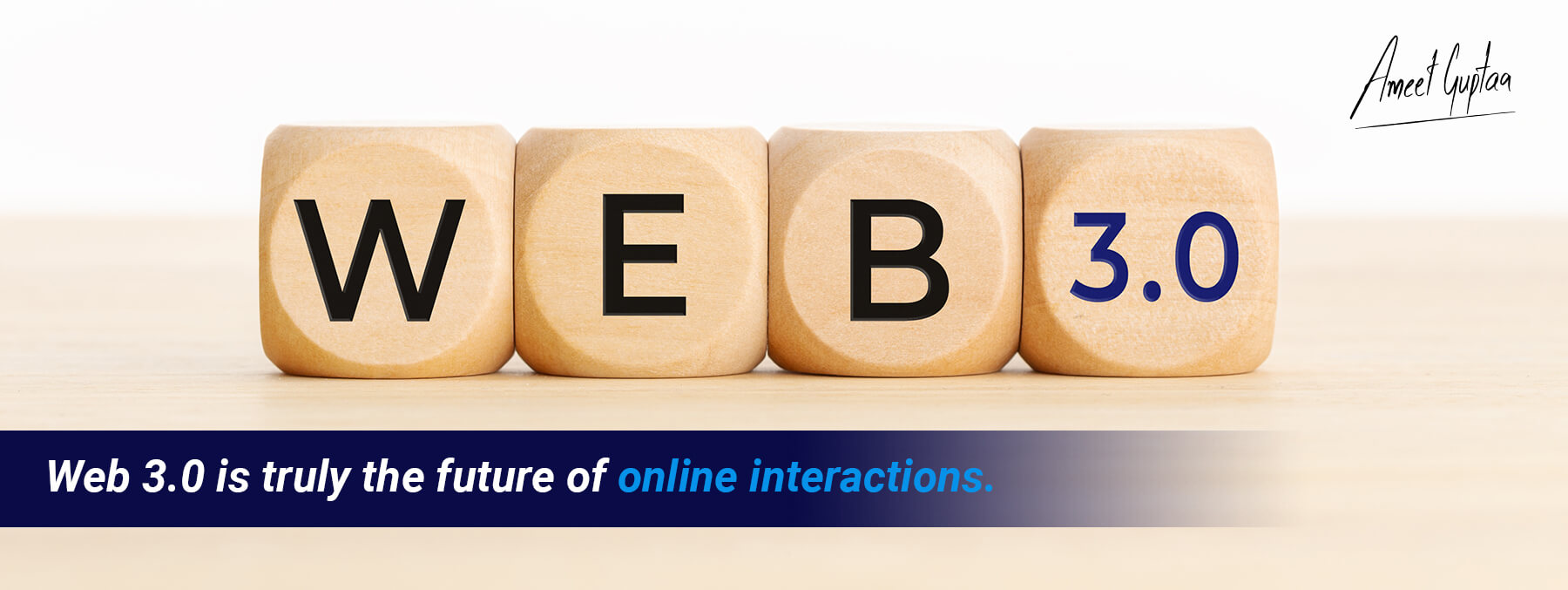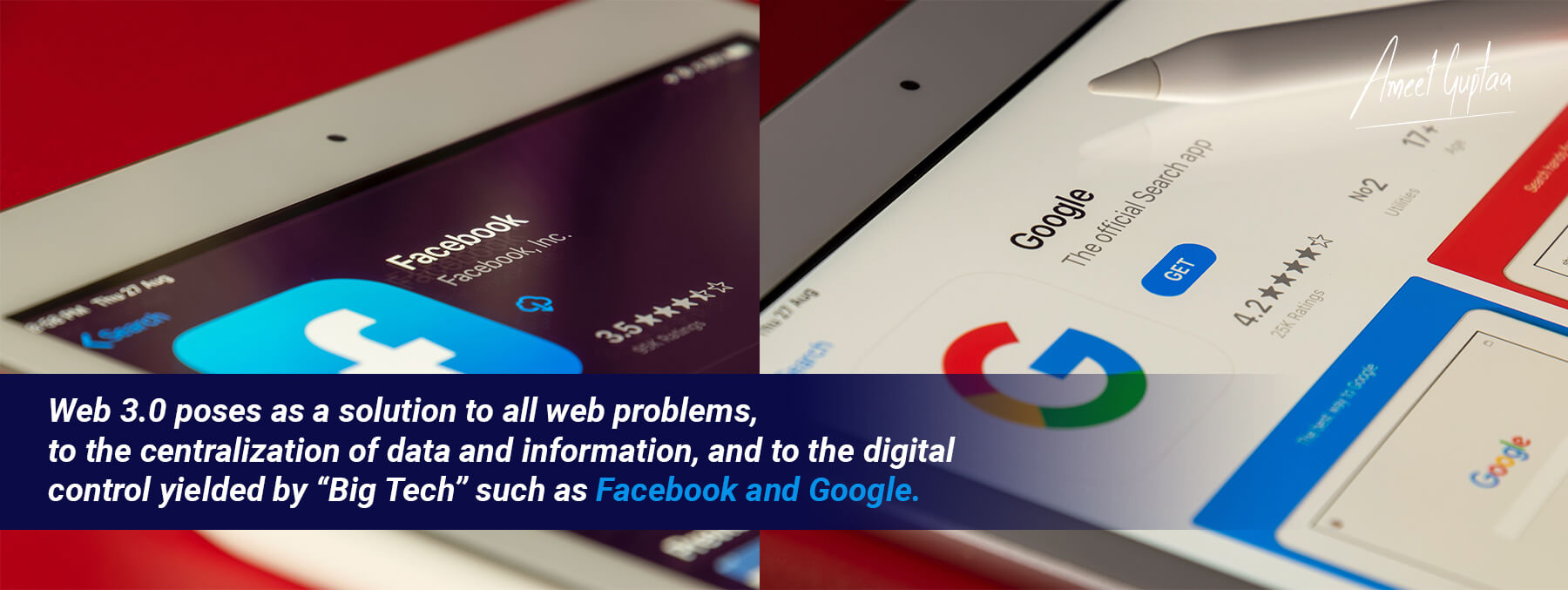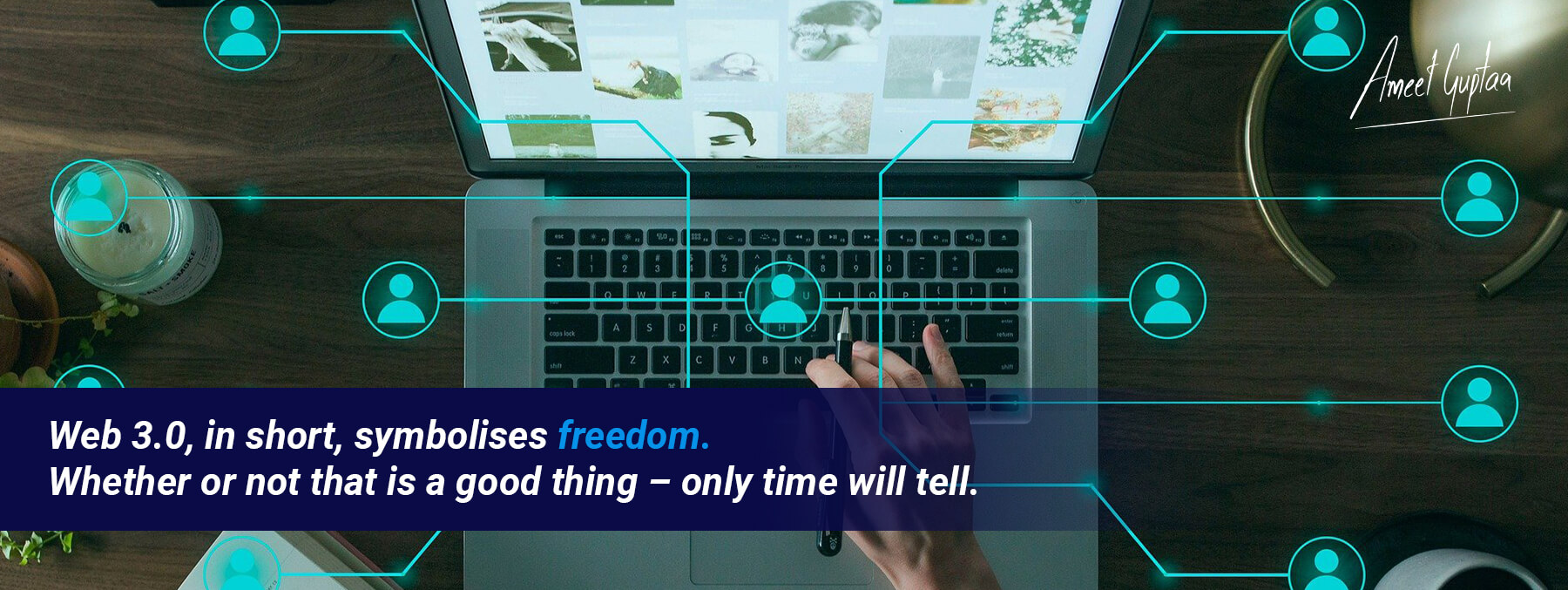What is Web 3.0? The Future Of Online Interactions

It’s 2022. A time to look ahead, explore the future, and examine a new digital landscape for brands and users everywhere. As businesses adopted digital counterparts and adapted to the new world order, suddenly, consumer habits shifted accordingly. Now, e-commerce is sweeping the globe, along with chat commerce, email marketing, and social media. Everyday tasks have been digitised. Strategies simplified.
Marketing has never been more innovative, more revolutionary, and more online. Yet, as users, we have become less discerning. Less concerned with protecting our privacy online. Instead, we are happy to award the three tech giants (Google, Facebook, and Microsoft) free rein to our browsing history, digital habits, and more.

That’s where Web 3.0 enters the picture. Revolution. Expedition into a brand new digital landscape and hemisphere free of external control. As an entrepreneur, new digital hemispheres intrigue me, make me wonder if Web 3.0 is truly the future of online interactions.
A world where classes, activities, and meetings are on Zoom. Where assignments and projects are emailed rather than submitted in person. Where social media is our main mode of communication (even if the person we are talking to is five feet away).
Web 3.0 poses an extreme reality, where our digital presence overshadows our physical one. Transactions, grocery shopping, socializing, and going to class will be all online. Digitised through an alternative, 100% digital reality.

Web 3.0, the most recent digital World Wide Web iteration, is a foray into self-identification, independent digital presence, and financial transactions without Big Tech management. The concept is a fascinating one. Many sceptics of Web 2.0, which centralises Big Tech control of online banking, transactions, and all digital activities, hail Web 3.0 as the future.
The innovative scheme Web 3.0 branches into several different avenues: cryptocurrencies (wherein transactions are 100% digital), bitcoin (which enables applications such as NFTs and DAOs to verify individual ownership and rights), the global presence of capital (through nontraditional sources), and decentralised cloud-based services.
In short, Web 3.0 poses as a solution to all web problems, to the centralization of data and information, and to the digital control yielded by “Big Tech” such as Facebook and Google.
But, let’s take Web 3.0 on a scalable level. What challenges do the digital landscape pose for small businesses and marketing? If the digital structure is truly implemented, how will Web 3.0 change our digital perspective? How will it enable growth (or stagnation) of burgeoning businesses?
To be honest, the answer is as ephemeral as the concept of Web 3.0. Although intriguing as a decentralised digital structure that will enable a more autonomous digital experience, Web 3.0 is a far way away from true realisation. A fever dream which may never foray into reality.
As a concept, however, Web 3.0 poses as an independent digital revolution to many businesses. As a business owner myself, the idea of a brand new digital experience, in which content is independently dispensed, is not only curious – it is extremely inviting.
A new landscape which will offer new digital opportunities, decentralise “Big Tech” control, improve data security, privacy, and perhaps democratise the internet.

Strangely enough, many internet users (seasoned or not) do not seem to grasp the concept of Web 2.0, in which data, content, transactions, and all internet activities are owned and controlled by “Big Tech” (Facebook, Google, Apple). Web 2.0 is our current reality, in which none of our internet activities, our content, our data- truly belongs to us. Rather, it is owned, observed, and regulated by “Big Tech.”
Web 3.0, in short, symbolises freedom. Whether or not that is a good thing – only time will tell.



